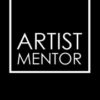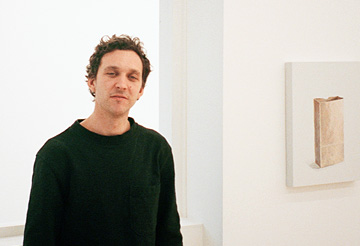Interview: WILL JARVIS
Ceri Hand Curator, Gallerist, Interviews
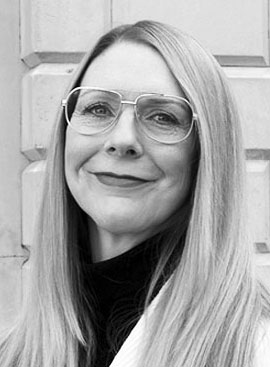
Will Jarvis studied painting at Camberwell College, London, graduating in 2009. He teamed up with fellow art student Harry Beer to establish The Sunday Painter, initially launching as a project space in The Marlborough pub, London in 2008. In 2014 the gallery became commercial and Tom Cole joined as a Director. In 2017 The Sunday Painter moved from its' base in Peckham to a larger permanent space in Vauxhall.
I first met Will around 2009, when I was running my own gallery (Ceri Hand Gallery, Liverpool) and I have been a huge fan of his and The Sunday Painter’s programme ever since.
Will and I manned a booth for our respective galleries at the Manchester Contemporary art fair in 2013. I really loved The Sunday Painter’s presentation (artists Piotr Lakomy, Guy Rusha and Samara Scott) and it was a joy to listen to Will talking with enthusiasm to clients and the public.
He cares deeply about art and the artists he represents. He is admirably, intensely articulate, playful, and sincere, which is an engaging combination and evident in his approach to selling, exhibiting and exchanges with people. This interview took place on 13 May 2020.
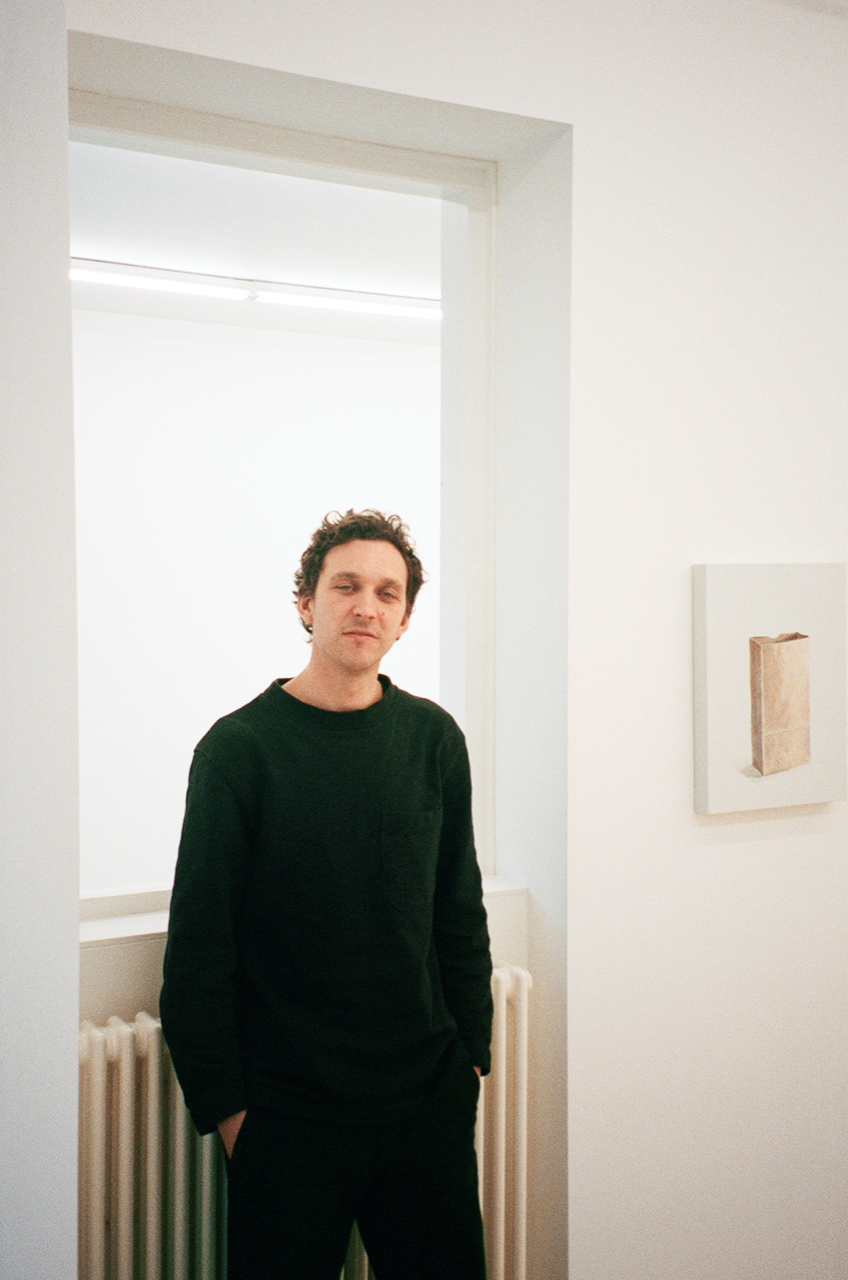
Will Jarvis, Photo Peter Lally
What are you doing, reading, watching or listening to now that is helping you to stay positive?
This is a very difficult time and my heart goes out to people affected by this awful disease. At the same time, I feel a sense of relief in relation to Global Warming. One billion animals died as a result of the forest fires in Australia, the direct result of Global Warming, collectively we have done very little to change our habits so in some sense I feel relieved we are now forced to and really hope this can exact some lasting change. So, reading about nature recovering and emerging myself in books about foraging and Taoism is my current vibe.
What are your core values and drivers that you bring to the gallery? What do you care about?
I think one’s values and drives (like most things in life) shift over time, working with artists who I love and respect as human beings not just as artists is very important. Searching for, and collaborating in, the creation of ambitious and imaginative experiences is a still a major drive.
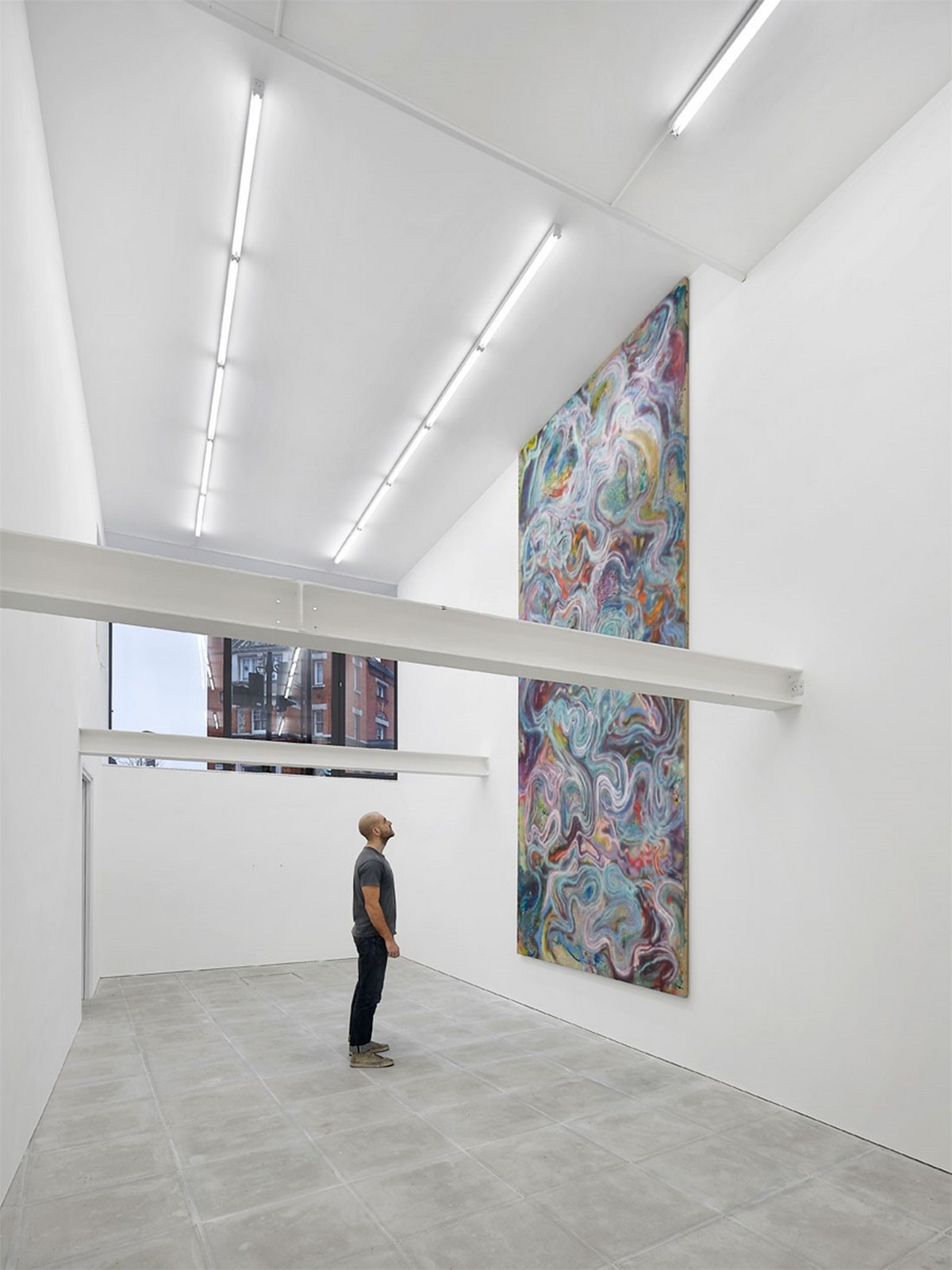
Tyra Tingleff, Will always be the opposite, installation view, 2018, The Sunday Painter
What do you enjoy the most about running a commercial gallery?
I had to come to come to terms with the reality that I actually love the act of selling artwork, I really enjoy the adrenaline that comes with a sale, it’s taken me a long time to be comfortable with that as I’d never seen myself as being materialistic.
How do you discover artists and what makes you finally decide you want to work with an artist?
We look across different platforms, from MA’s and BA’s, various project spaces, other commercial or non-commercial galleries and social media. Ultimately we have to believe in the vision of an artist, our faith in them has to go beyond a singular successful body of work, we also have to like them and feel our efforts are appreciated, that they understand it’s a collaborative effort, that we put in a lot of energy and take a lot of risk in what we do.
How do you gauge which artists and artworks will be interesting to audiences?
I guess over the years we get a feel for who likes what, which tone or taste might work where, or for whom.
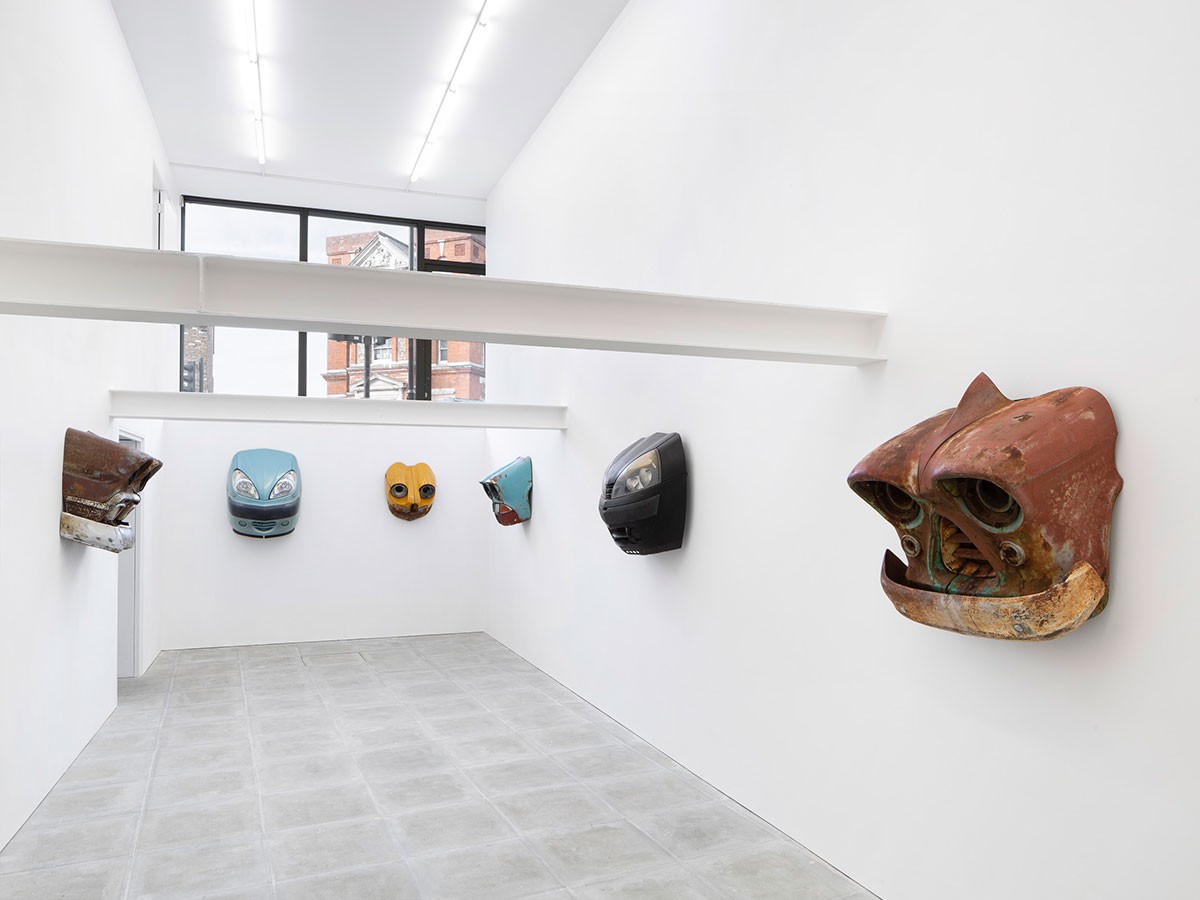
Leo Fitzmaurice, Autosuggestions, installation view, 2020, The Sunday Painter
What kind of support or expertise do you offer or provide artists?
Firstly, a beautiful gallery space with a solo show every two to three years, working on their behalf as essentially an agency to promote and help further their careers. Economic support in the form of sales and production money.
All kinds of practical help ranging from consignments for museum shows to feedback about a direction they might be moving their work in.
What sales channels do you find work best for your artists?
Up until very recently this has been an event-based industry, it is also one built on personal relationships, when it’s worked best it is the combination of both that create conditions most conducive to selling.
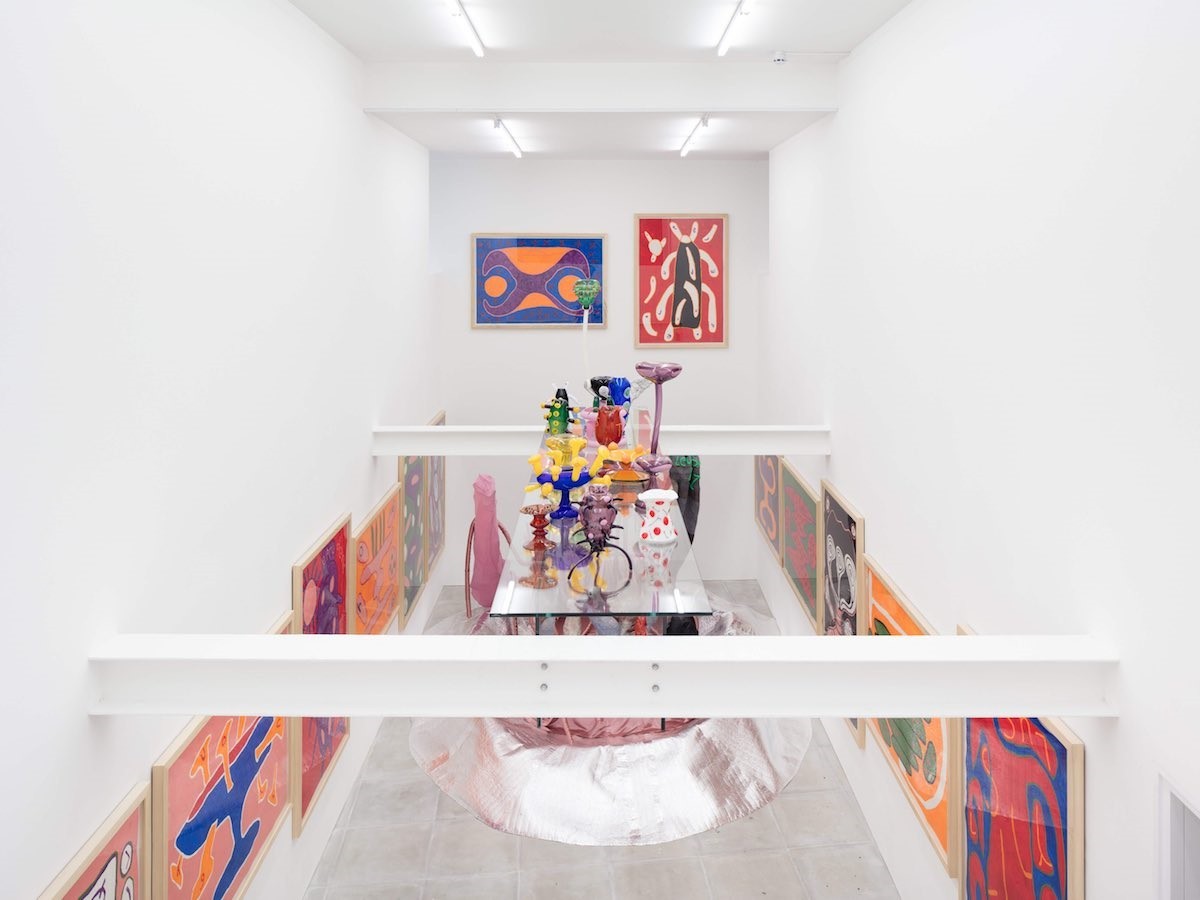
Nicholas Pope, Sins and Virtues, installation view, 2018, The Sunday Painter
What sales channels do you find work best for your artists?
Up until very recently this has been an event-based industry, it is also one built on personal relationships, when it’s worked best it is the combination of both that create conditions most conducive to selling.
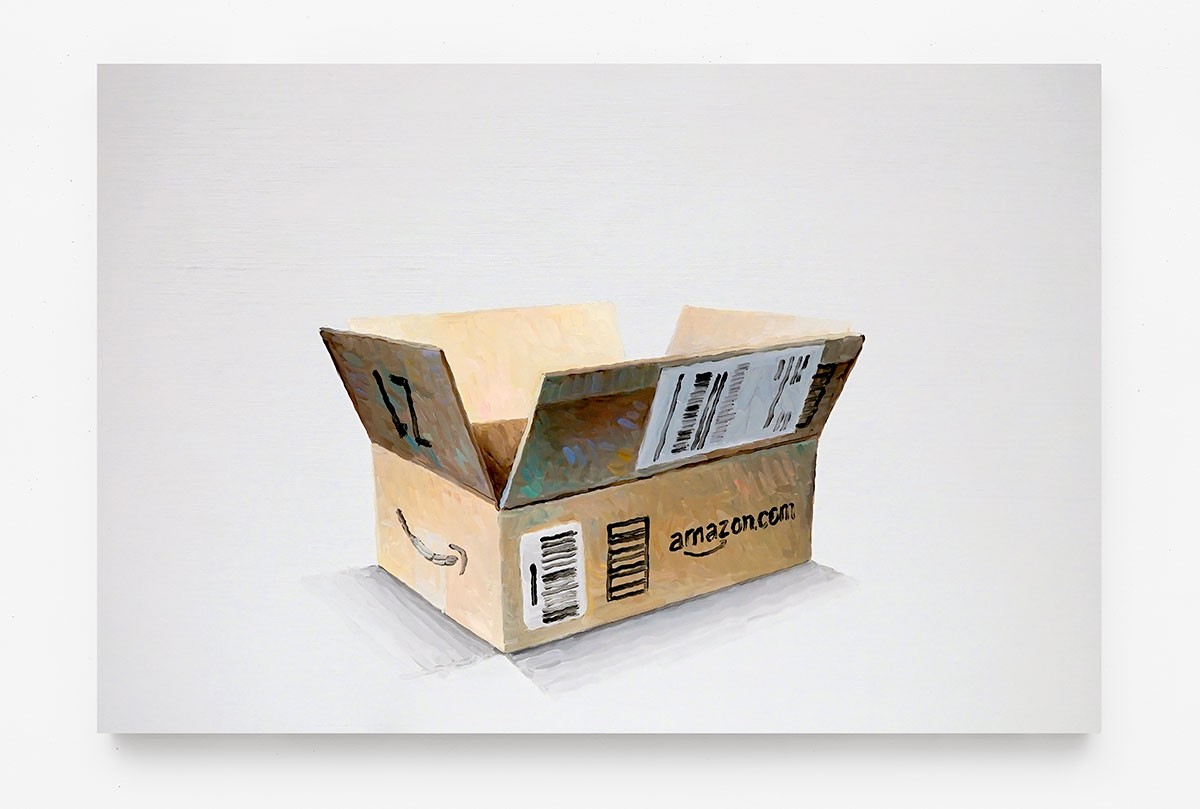
Cynthia Daignault, Amazon.com, 2020, Oil on Linen, 30 × 45 inches
Can you describe one of your most rewarding relationships with an artist - what factors made it enjoyable?
Well all the relationships are rewarding, or we would not be able to maintain them, but it is greatly satisfying to work with an artist in placing work into a major institution. Cynthia Daignault and I worked together on placing her seminal (360 panel) painting Light Atlas into the Crystal Bridges Collection, and more recently with Nicholas Pope in getting a large ceramic font into the V&A collection.
What risks have you taken in the gallery that perhaps did not go so well but you learnt the most from?
Our second ever Frieze Art fair we showed a conceptual artwork that essentially disappeared, it was available to buy but really only as a temporary performance of the work and a certificate. It was an incredible work, but in hindsight not the most business savvy move for a young and impoverished commercial gallery. I certainly don’t regret doing it but have since realised that peoples receptivity to certain works or ideas is relative to an environment or context.
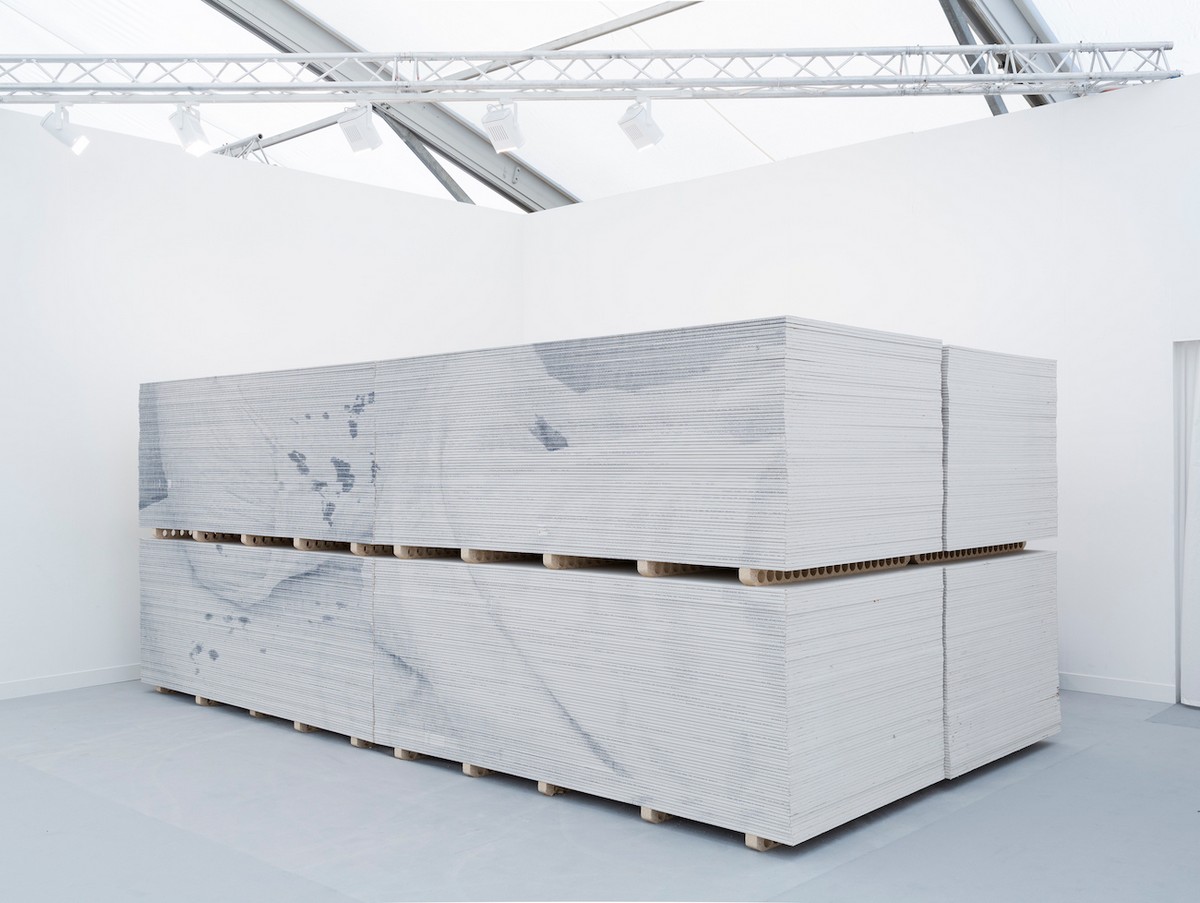
Rob Chavasse, Marsh Lane Diversion, 2016, Diverted shipment of plasterboard, Frieze London, 2016
What new strategies are you trying or considering in the current climate? How will you measure success?
Ironically, the nature of a gallery with its poor cash flow, heavy expenses and tiny profit margin has meant this brave new world has not been as painful as expected. In terms of measuring success however that might be tough as our sense of satisfaction comes from a more holistic collection of metrics which include Gallery attendance so as, yet the jury is still out.
What would you hope that people experience and learn from seeing one of your exhibitions or events?
I just hope they feel something, even if it's just repulsed or confused.
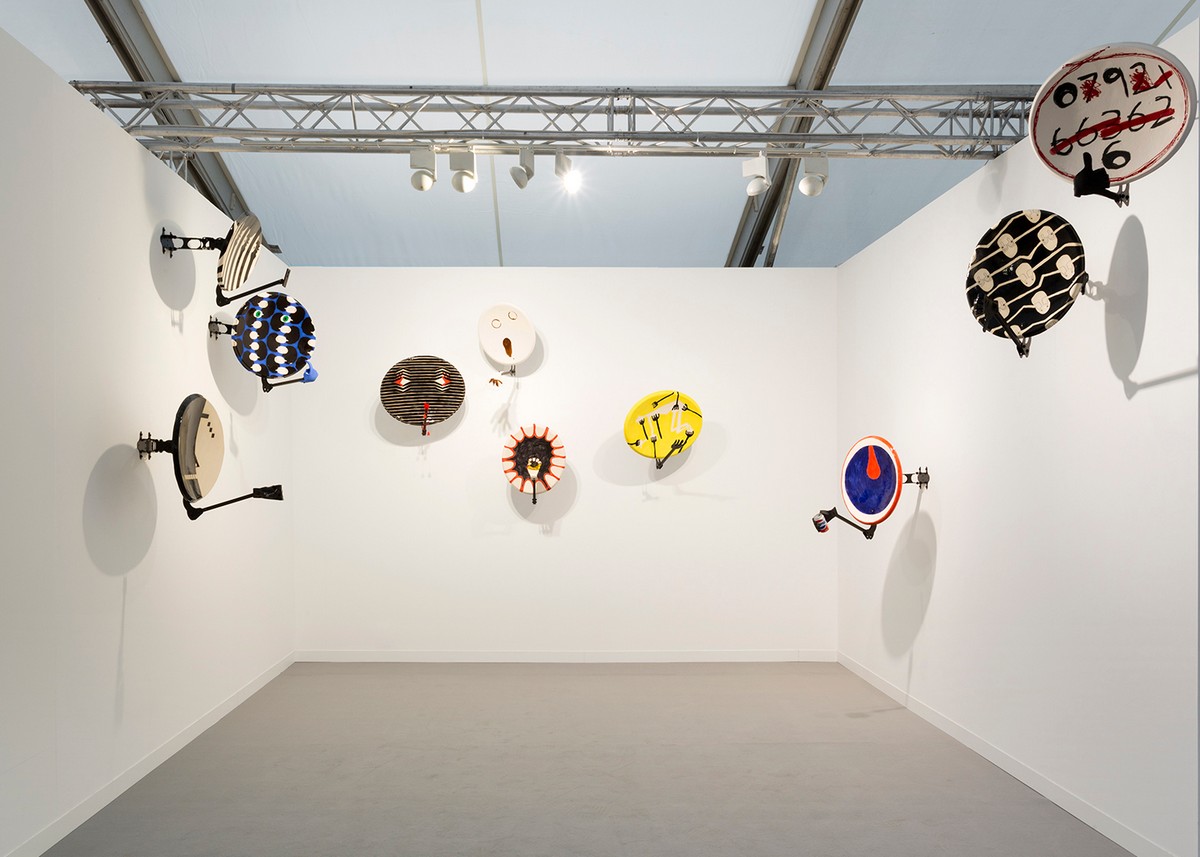
Emma Hart, Commercial Breakz, 2017, Frieze London
Do you have any advice for artists?
Get involved in your local art scene, realise the line between DIY and ‘professional’ is incredibly thin and at the end of the day it’s shared passion that holds this strange misshapen thing together, that even makes it a thing.
What helpful resources would you recommend to artists?
See Saw app is a great resource, use it to go to openings, drink, and chat to people, make friends.
Follow @TSPGALLERY and visit www.thesundaypainter.co.uk
Please share this interview
And do feel free to email or contact us via socials @cerihand
Coming Next...
An interview with curator Helen Nisbet, a curator from Shetland, now based in London. She is Artistic Director for Art Night and curates projects across the UK, including projects and exhibitions with artists Helen Cammock; Mark Leckey; Heather Phillipson; Christine Sun Kim; Keith Piper; Barbara Kruger; Flo Brooks and Zadie Xa. Helen sits on the Acquisitions Committee for the Arts Council Collection and the Advisory Board for Art Quest and a-n.
